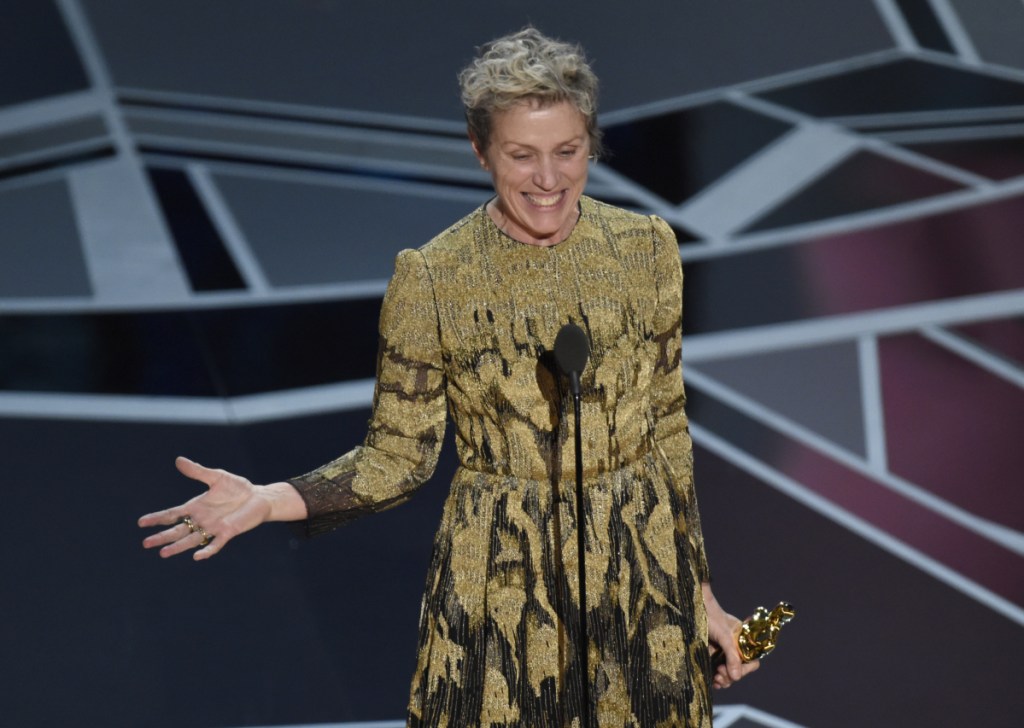A suggestion for Oscar winner Frances McDormand’s next move: Three billboards. Outside Hollywood.
“Still no Inclusion Riders?”
“How come, Hollywood elite?”
“Only 6 of 39 Oscars went to women in 2018.”
For all the talk about respecting women, during the Oscars, the parade of winners was dominated by men. It was appalling to discover that the number of women — six — receiving the top awards was the lowest since 2012, when only four women were honored. And two of those six winners were in categories open only to women.
Hollywood has a lot of work to do not only in offering challenging screen roles for women, but also in providing opportunities for women in filmmaking jobs.
Women comprised only 37 percent of major characters and 34 percent of all speaking characters in the 100 top-grossing films in 2017, according to the organization Women and Hollywood. In the top-grossing 250 films, women accounted for only 18 percent of all directors, writers, producers, executive producers, editors and cinematographers. More than 90 percent of those films had no female sound designers, cinematographers, composers or sound editors.
Perhaps it’s because 82 percent of all of Hollywood’s top decision-makers are also men.
Dawn Hudson, who heads the Academy of Motion Picture Arts and Sciences that gives out the Oscars, has pledged to double the number of women and people of color in its ranks by 2020.
Immigrant director Guillermo del Toro became the fourth filmmaker from Mexico to win the best director prize in the last five years. Jordan Peele was honored as the first black screenwriter to win best original screenplay for “Get Out,” which he also directed. But people of color remain underrepresented in Hollywood.
It all explains why McDormand closed her best-actress award acceptance speech Sunday with this appeal: “I have two words to leave with you tonight, ladies and gentlemen: inclusion rider.”
Most Americans had no idea what she was talking about. Now they do.
Inclusion riders are provisions actors can ask to be added to their contracts designed to ensure that casting on productions is more fairly representative of the general population. The riders could stipulate, for example, that the cast and crew must have 50 percent gender parity, 40 percent inclusion for people of color, 5 percent LGBTQ and 20 percent disabled.
In a better world, inclusion riders wouldn’t be necessary. But it’s clear that Hollywood needs a push.
Editorial by The Mercury News (San Jose, Calif.)
Send questions/comments to the editors.



Success. Please wait for the page to reload. If the page does not reload within 5 seconds, please refresh the page.
Enter your email and password to access comments.
Hi, to comment on stories you must . This profile is in addition to your subscription and website login.
Already have a commenting profile? .
Invalid username/password.
Please check your email to confirm and complete your registration.
Only subscribers are eligible to post comments. Please subscribe or login first for digital access. Here’s why.
Use the form below to reset your password. When you've submitted your account email, we will send an email with a reset code.